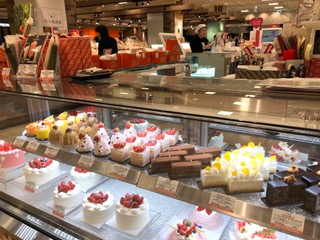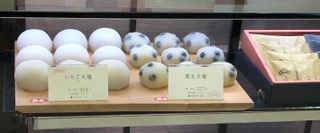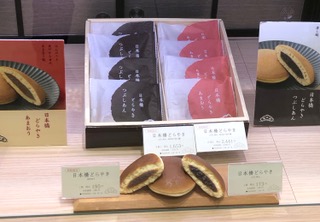The Pastry Chef from Kabul
- At February 04, 2019
- By admin
- In Annes Letters
 0
0
Dear Family and Friends,
One of my favorite classes consists of adults. Their English varies, but basically it is high enough that we can have some good discussions. In fact, four of them have lived overseas and one goes to Europe frequently to attend the opera. Because of their good language skills, I have the freedom to choose class materials from a wide range of sources: magazines or newspapers, TEDTalks or art, science or literature. Luckily, too, everyone is eager to talk, to joke, to disagree, and being Japanese, to deeply listen. Without a doubt, that time with those enthusiastic people is one of the highlights of my week.
Recently I found a series of articles in Al Jeezera that were focused on chefs around the world. There were ten of them, so I decided to work with each separately. The first was called “The Pastry Chef from Kabul”.
Before each class, I always prepare warm-up questions to ignite the discussion, and also to invite students to form their own ideas before listening to the article. Since I divide the students into small groups, the conversations usually take very different tracts, which also adds to the flexibility and delight of the hour.

However, this time before breaking into separate discussions, one man raised his hand and very seriously asked, “What is dessert?” (Dessert was a word on the question sheet I had just handed out.) I was taken aback. First, I was surprised because dessert is so obvious to me that I did not think it needed explaining. And second, because this particular gentleman had lived in America. But then the rest of the class pipped in, “Yes, what is dessert?” I was not expecting that either.



“Oh, now I get it,” the older gentleman said with relief spreading over his face. And with that everyone else could relax, too. Then each group went its separate way to discuss sweets of all sorts and to shape their own notions of the truly marvelous and admirable Pastry Chef from Kabul.
One of my favorite classes consists of adults. Their English varies, but basically it is high enough that we can have some good discussions. In fact, four of them have lived overseas and one goes to Europe frequently to attend the opera. Because of their good language skills, I have the freedom to choose class materials from a wide range of sources: magazines or newspapers, TEDTalks or art, science or literature. Luckily, too, everyone is eager to talk, to joke, to disagree, and being Japanese, to deeply listen. Without a doubt, that time with those enthusiastic people is one of the highlights of my week.
Recently I found a series of articles in Al Jeezera that were focused on chefs around the world. There were ten of them, so I decided to work with each separately. The first was called “The Pastry Chef from Kabul”.
Before each class, I always prepare warm-up questions to ignite the discussion, and also to invite students to form their own ideas before listening to the article. Since I divide the students into small groups, the conversations usually take very different tracts, which also adds to the flexibility and delight of the hour.

However, this time before breaking into separate discussions, one man raised his hand and very seriously asked, “What is dessert?” (Dessert was a word on the question sheet I had just handed out.) I was taken aback. First, I was surprised because dessert is so obvious to me that I did not think it needed explaining. And second, because this particular gentleman had lived in America. But then the rest of the class pipped in, “Yes, what is dessert?” I was not expecting that either.
But then I realized that traditionally Japanese people rarely serve dessert. And if they do, it might be a small piece of fruit that is usually included as an adornment next to the main meal. Instead, sweets and the like are usually enjoyed as an afternoon snack, along with green tea, or nowadays coffee.
After discussing “desserts”, another student was confused by “pastry”. “Is ice cream a pastry? And how about candy or chocolate?” Again, I was caught off guard. However, one class member had lived in the Netherlands, so she explained that pastry needed flour. “So, a tart, a cookie, a piece of pie or cake would be pastry,” she explained.
After discussing “desserts”, another student was confused by “pastry”. “Is ice cream a pastry? And how about candy or chocolate?” Again, I was caught off guard. However, one class member had lived in the Netherlands, so she explained that pastry needed flour. “So, a tart, a cookie, a piece of pie or cake would be pastry,” she explained.

This elderly man still seemed baffled, so I delved into my own experiences here in Japan and came up with delicious round mochi-rice balls filled with sweet beans, ground sesame seeds, or other delights.

And then there is also “doraki”, a “pancake sandwich” filled with sweet red beans. They all could possibly be a Japanese equivalent to Western pastries, enough for that class, at least.

“Oh, now I get it,” the older gentleman said with relief spreading over his face. And with that everyone else could relax, too. Then each group went its separate way to discuss sweets of all sorts and to shape their own notions of the truly marvelous and admirable Pastry Chef from Kabul.
Love,
Anne



